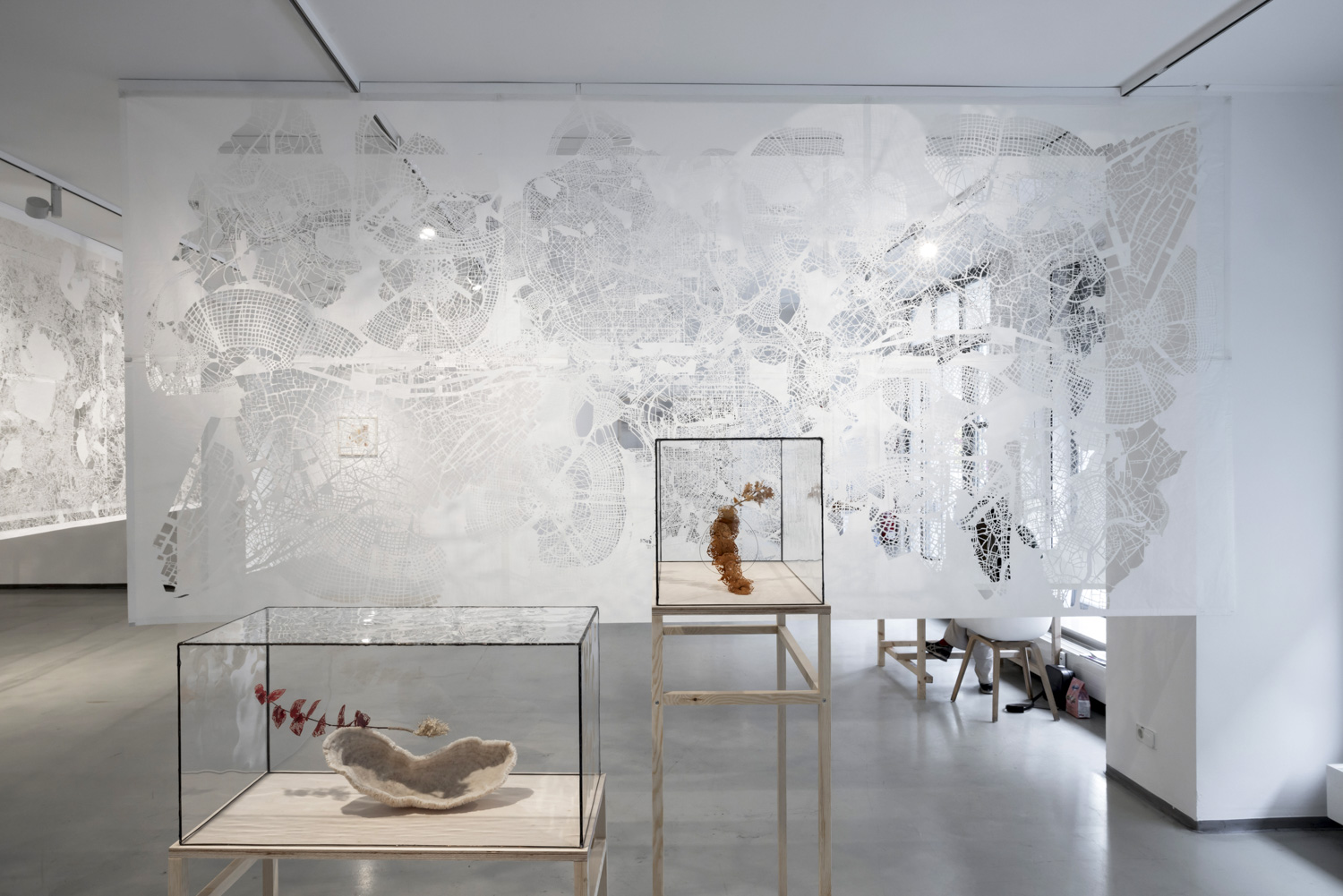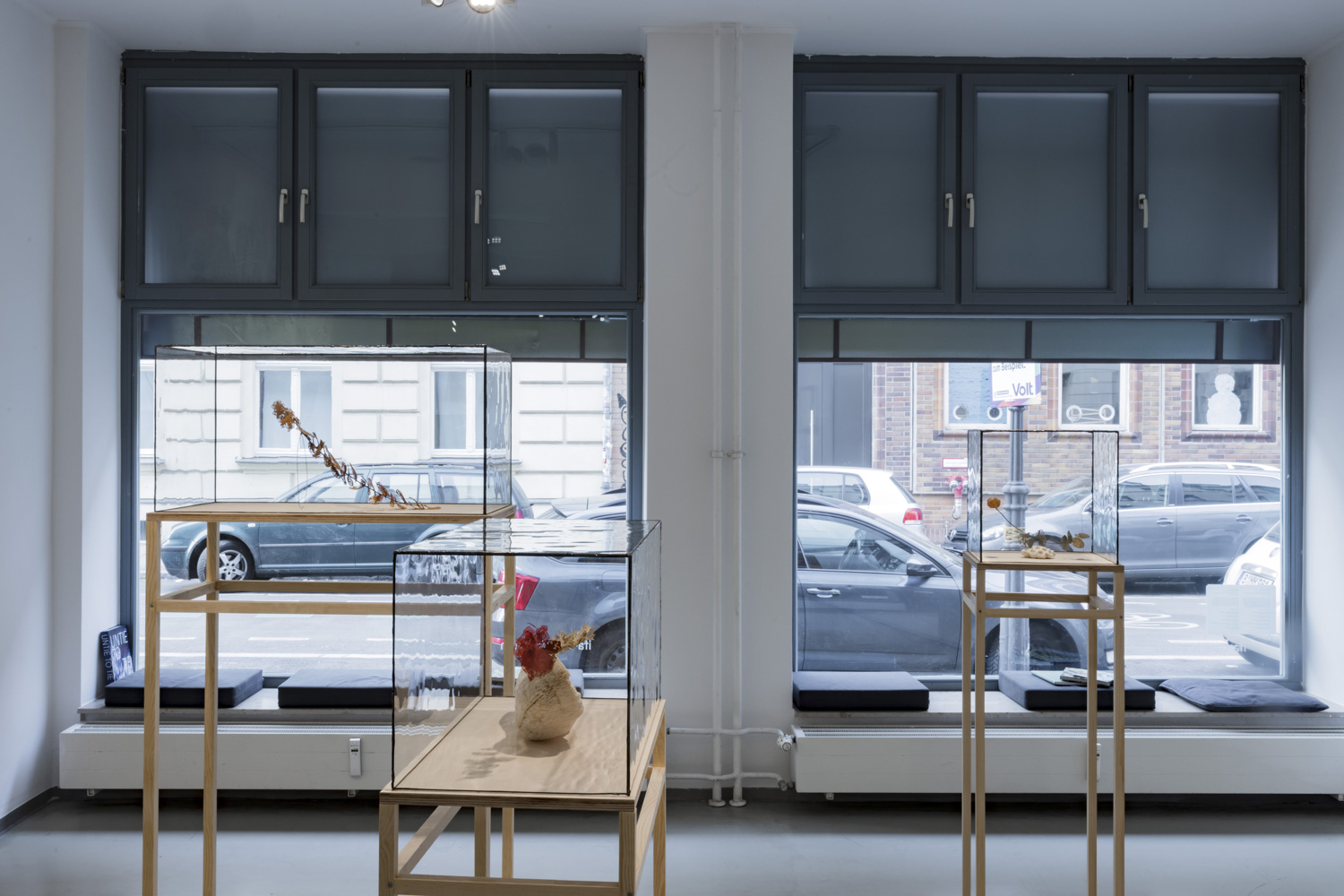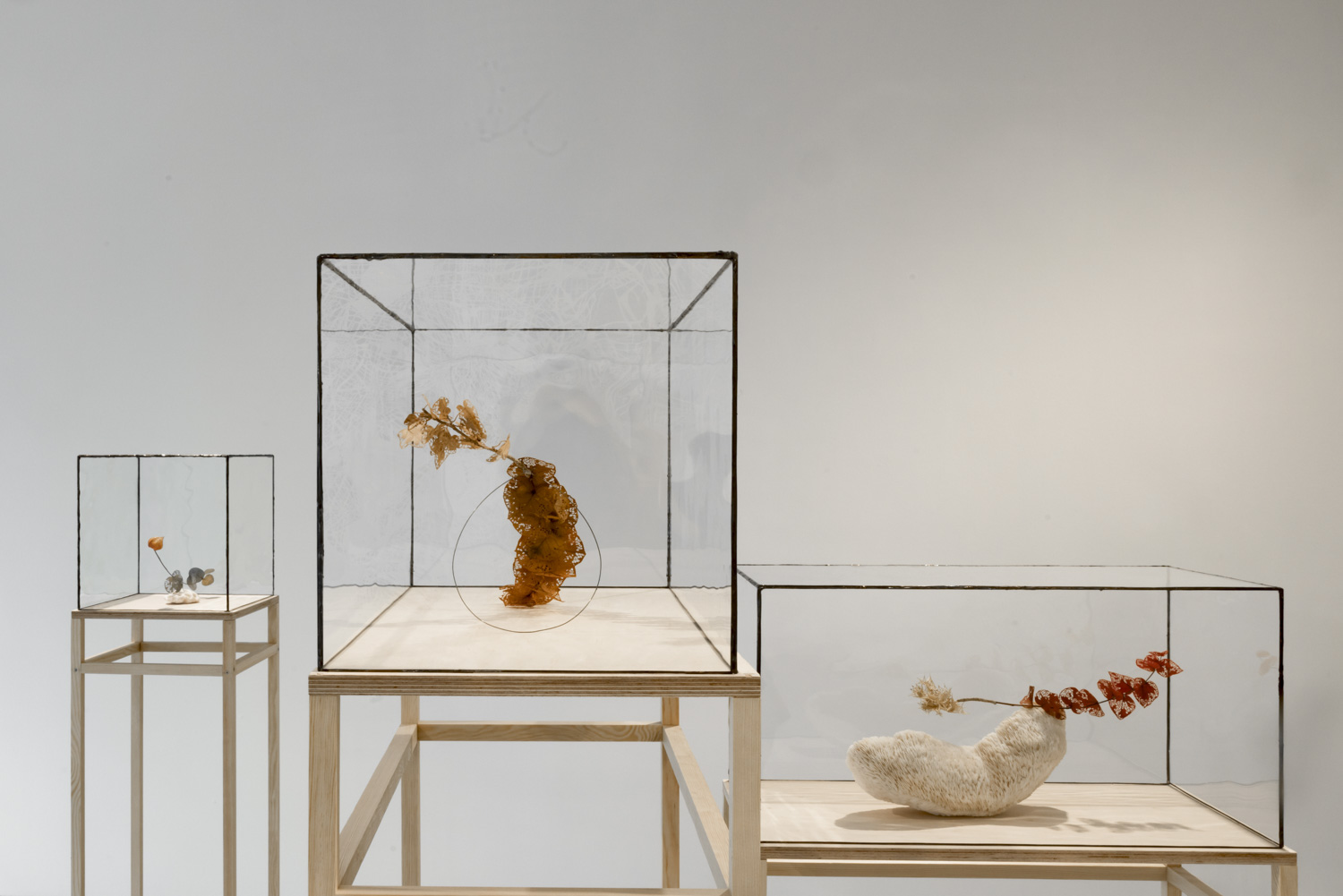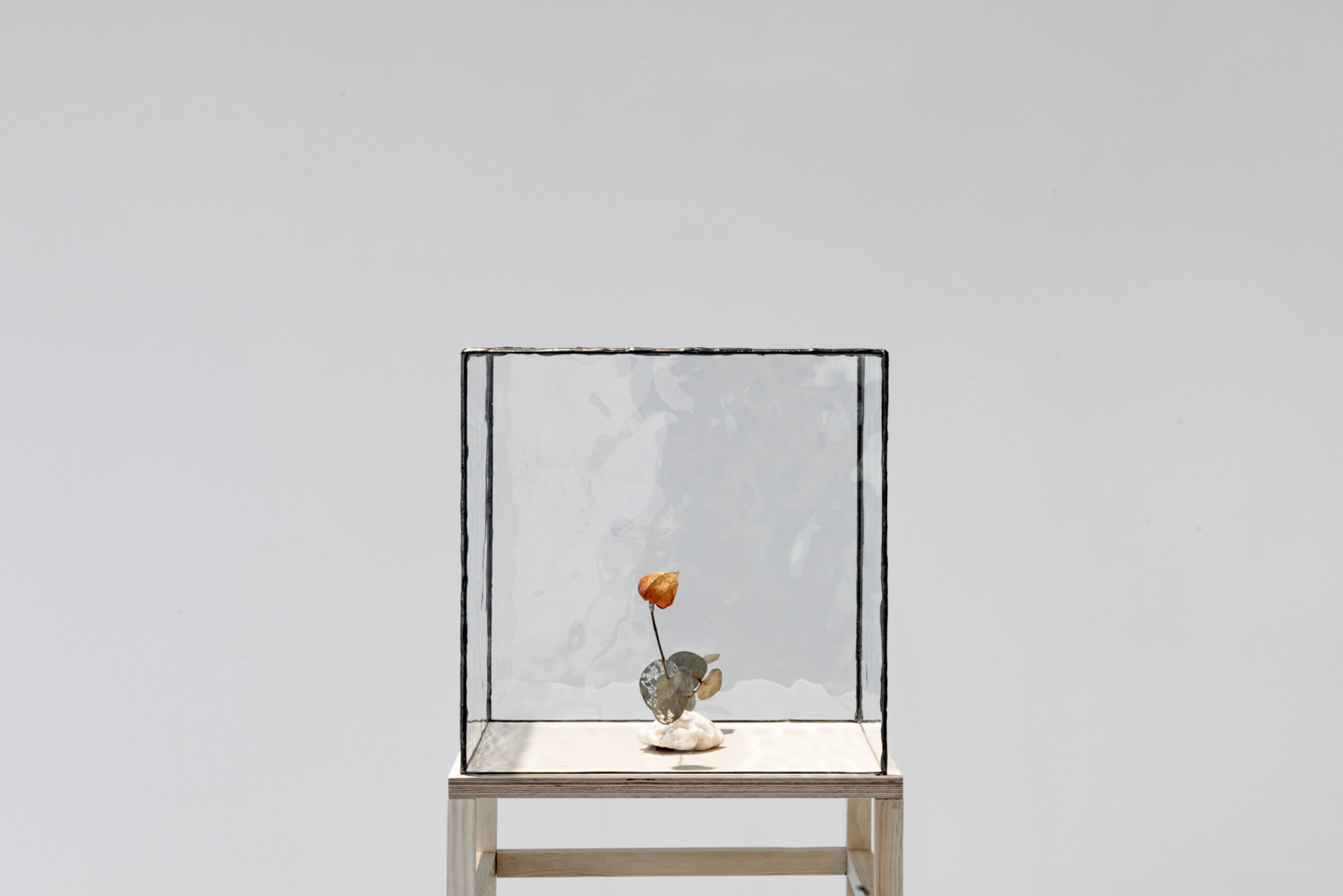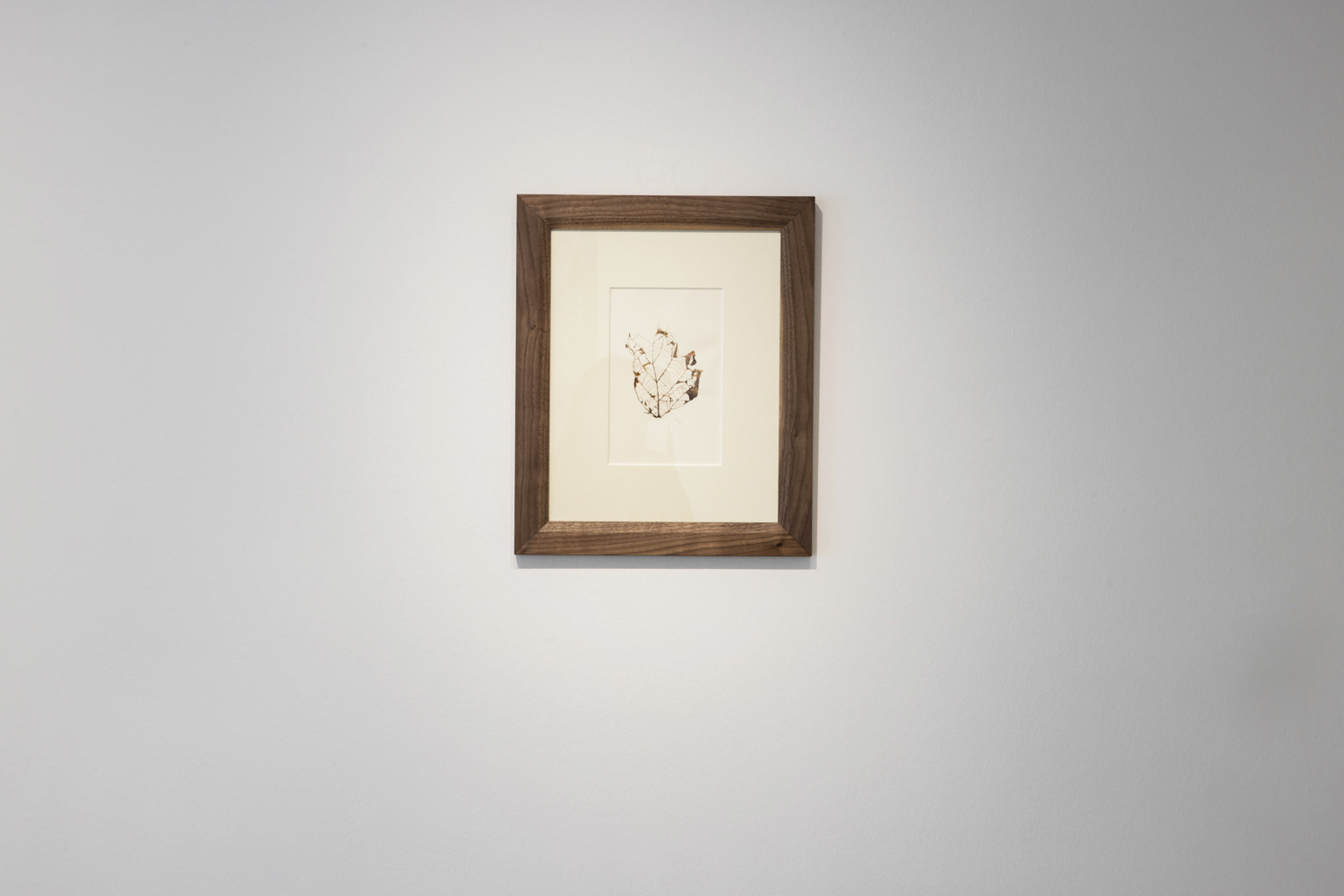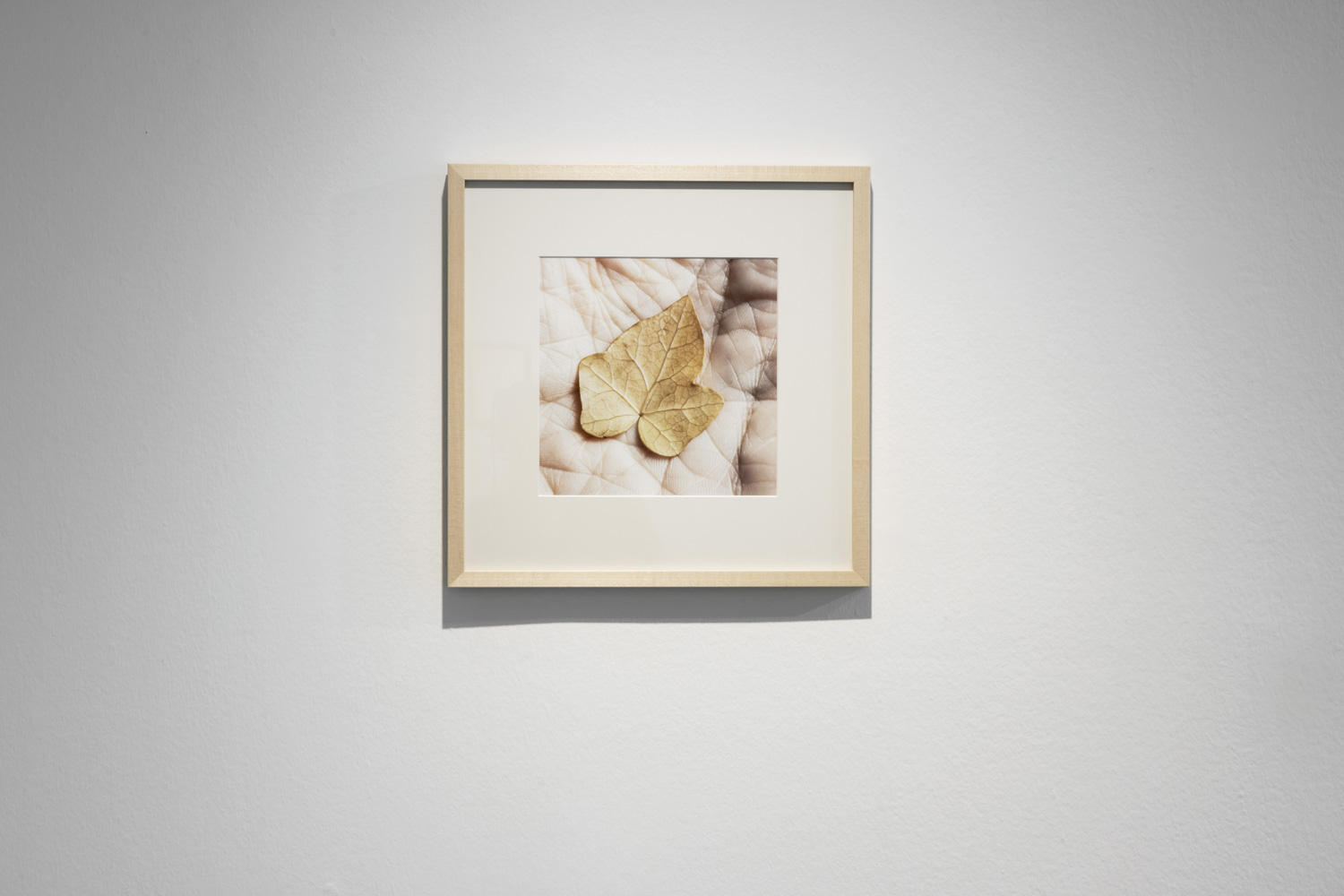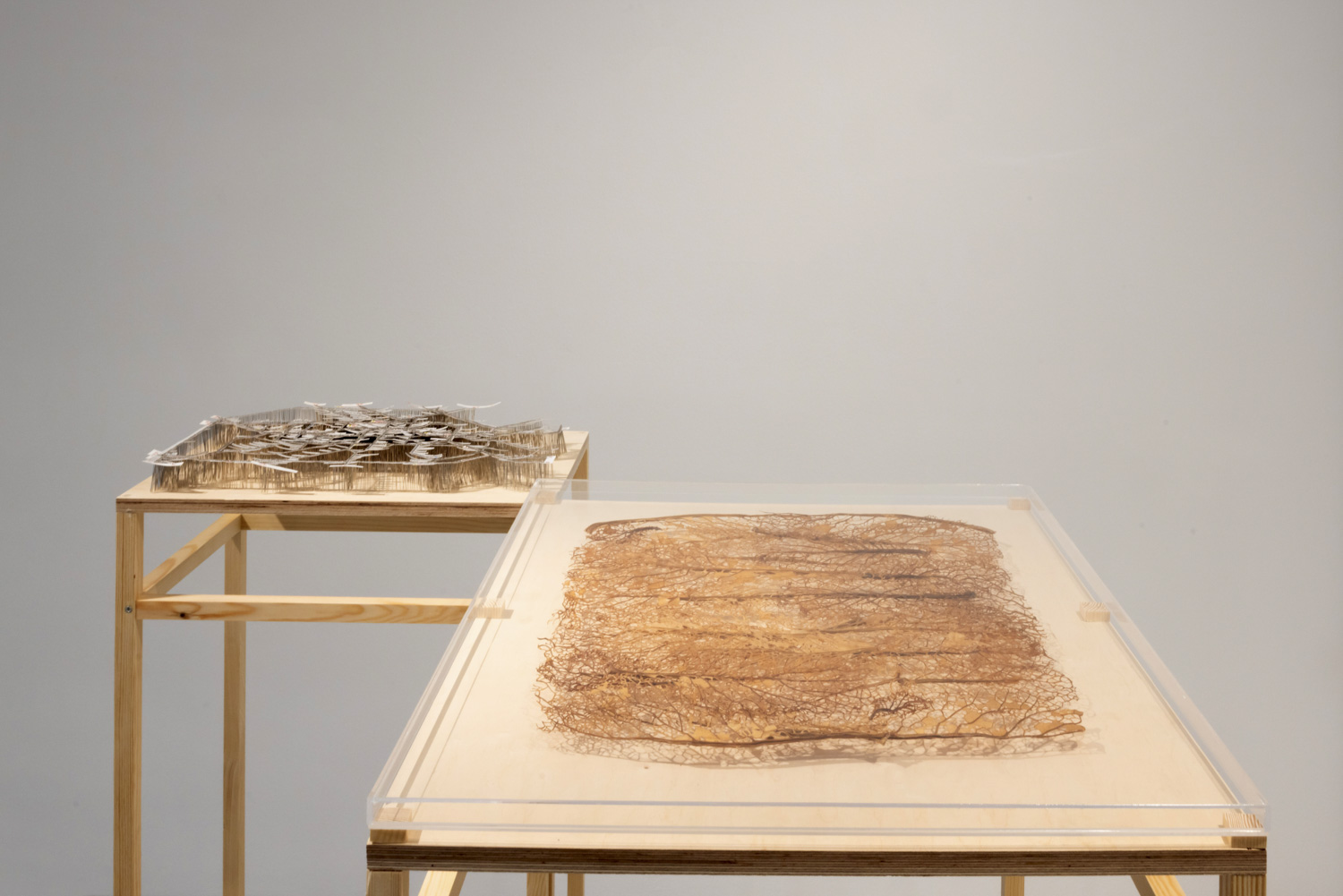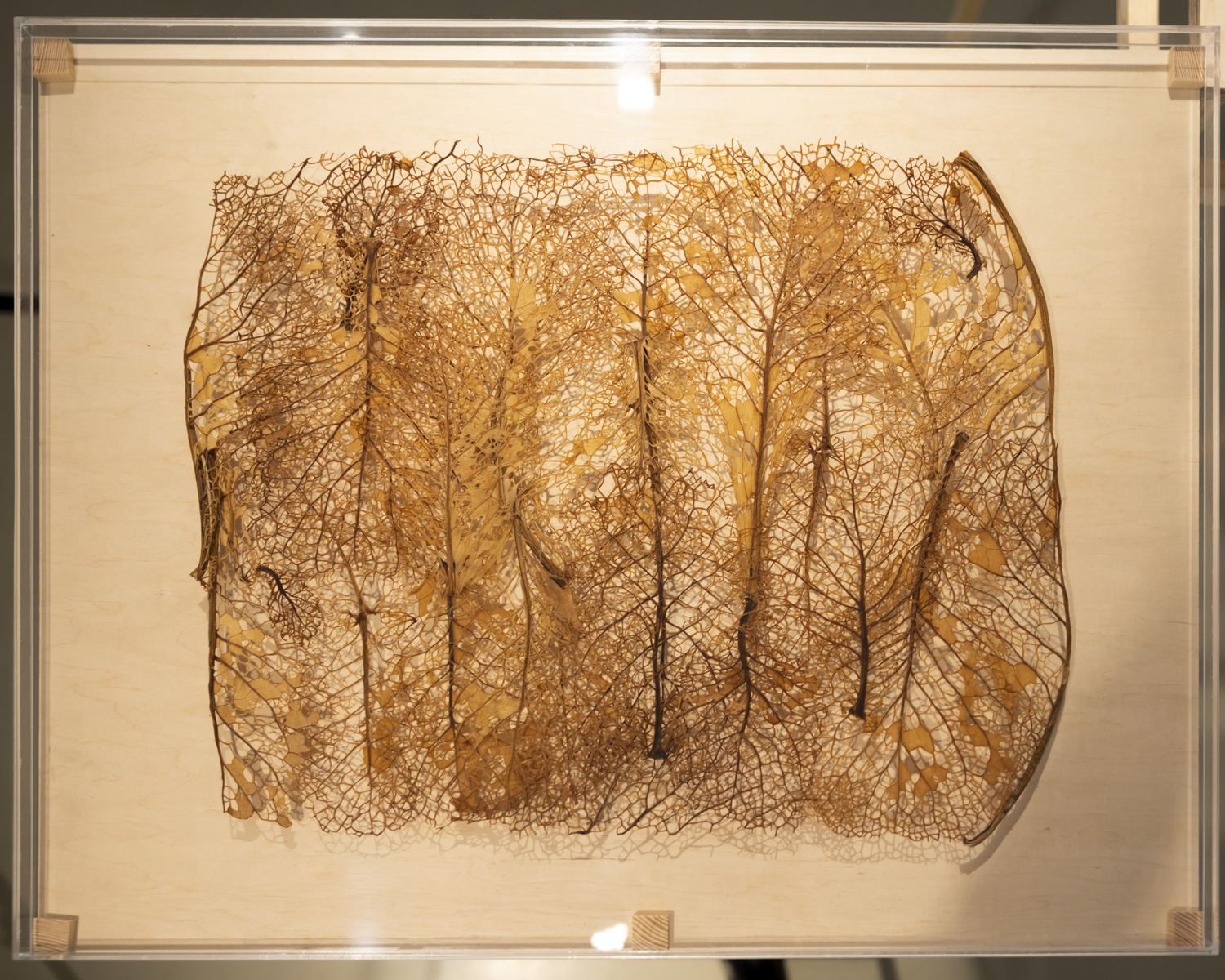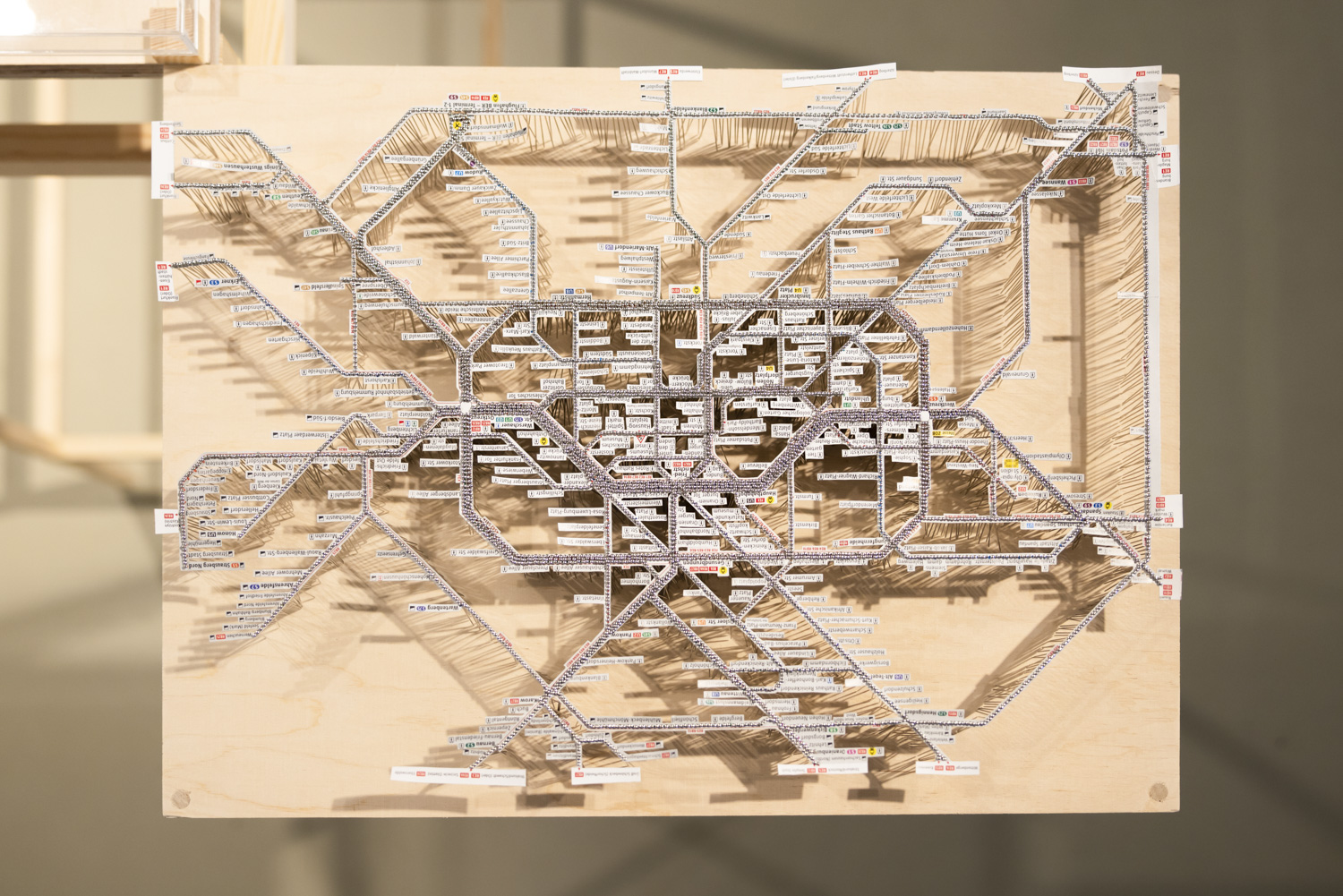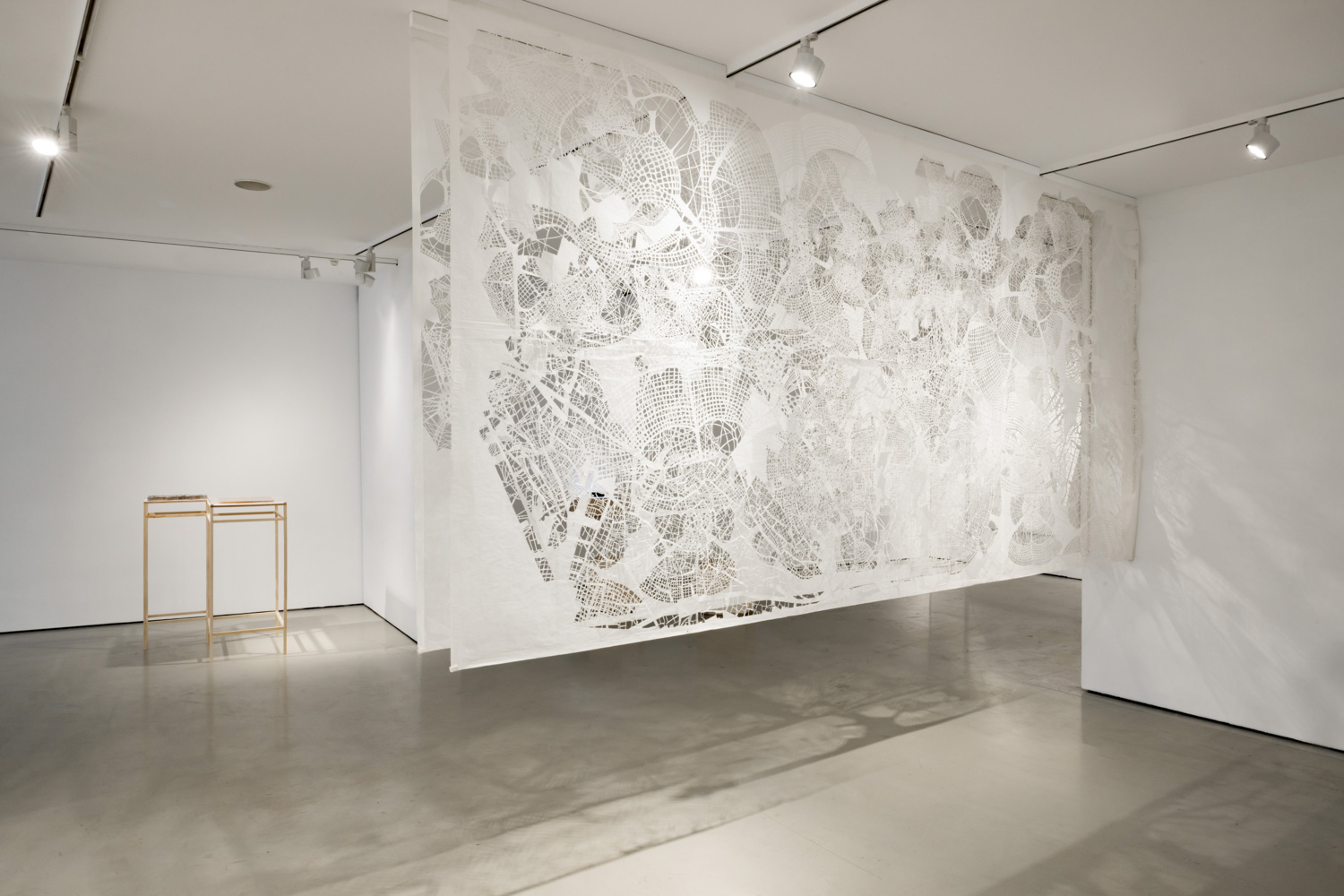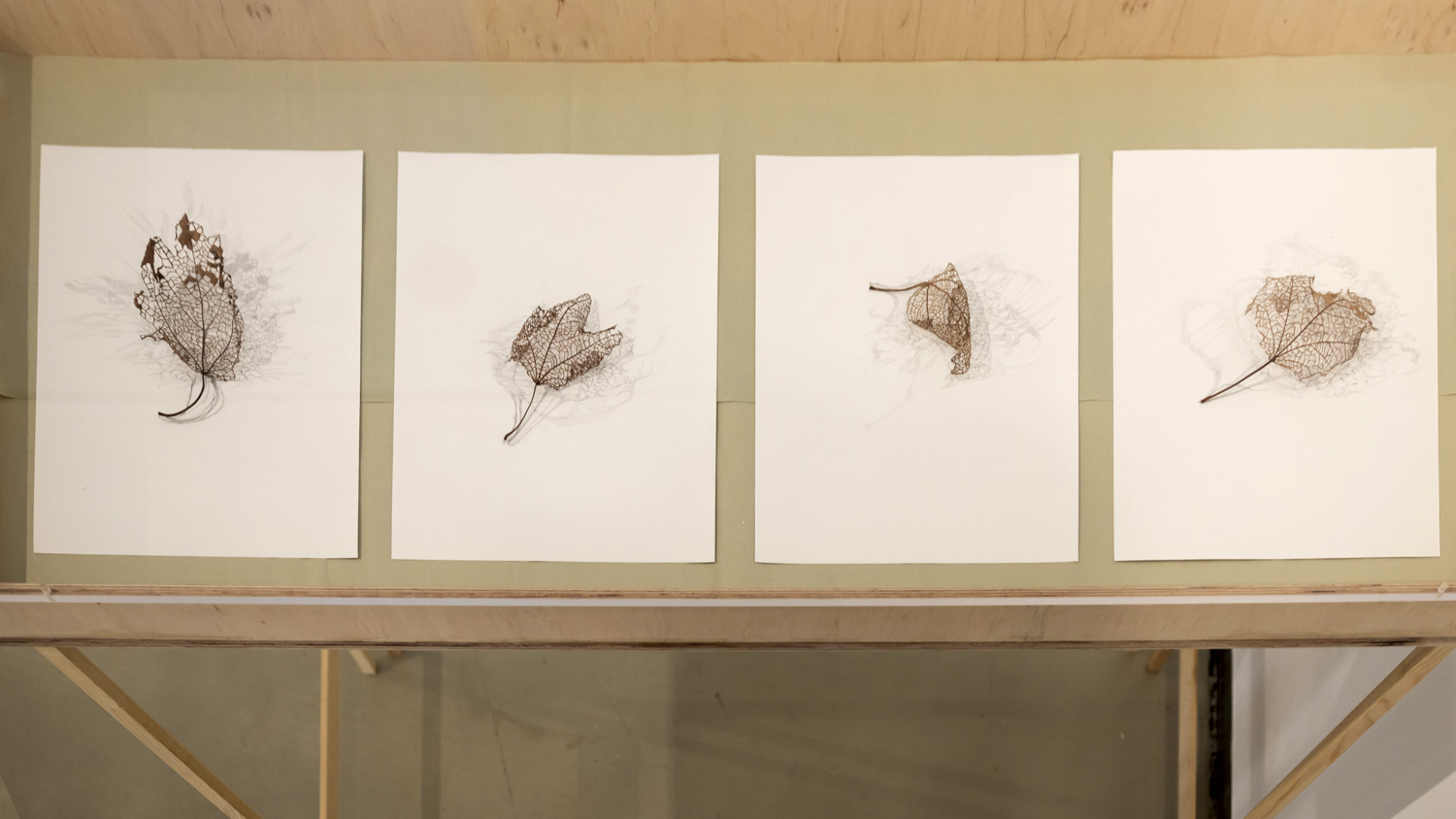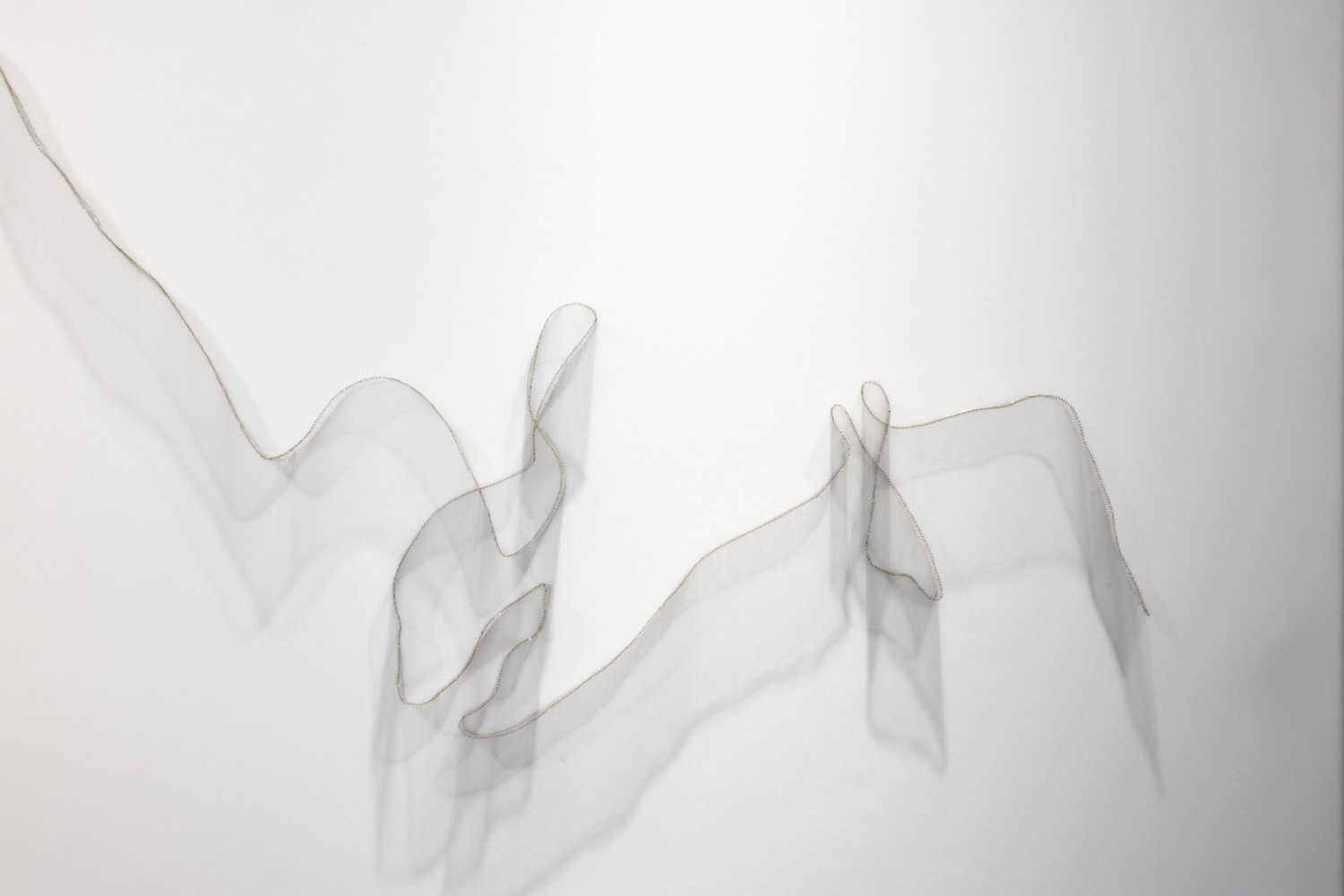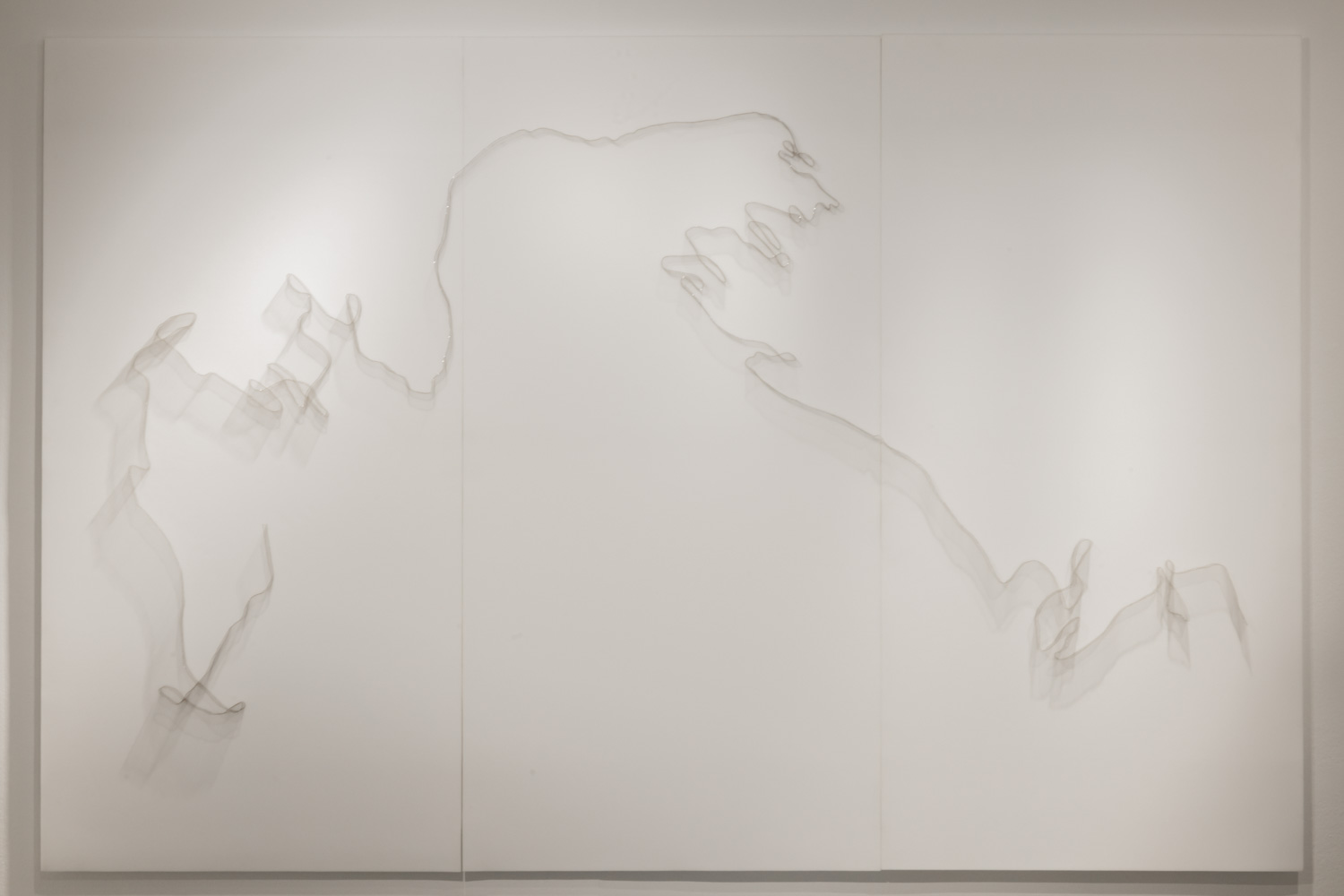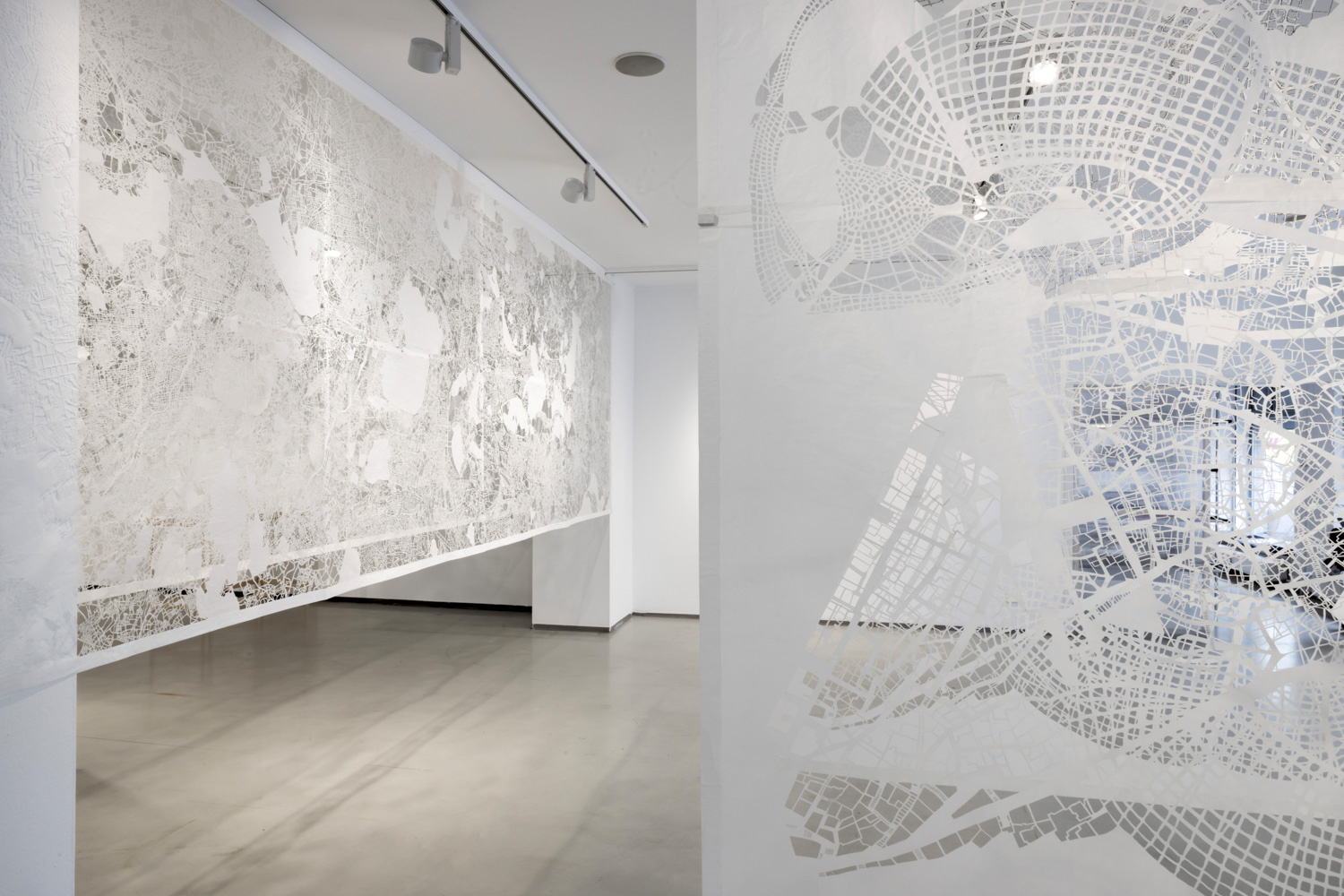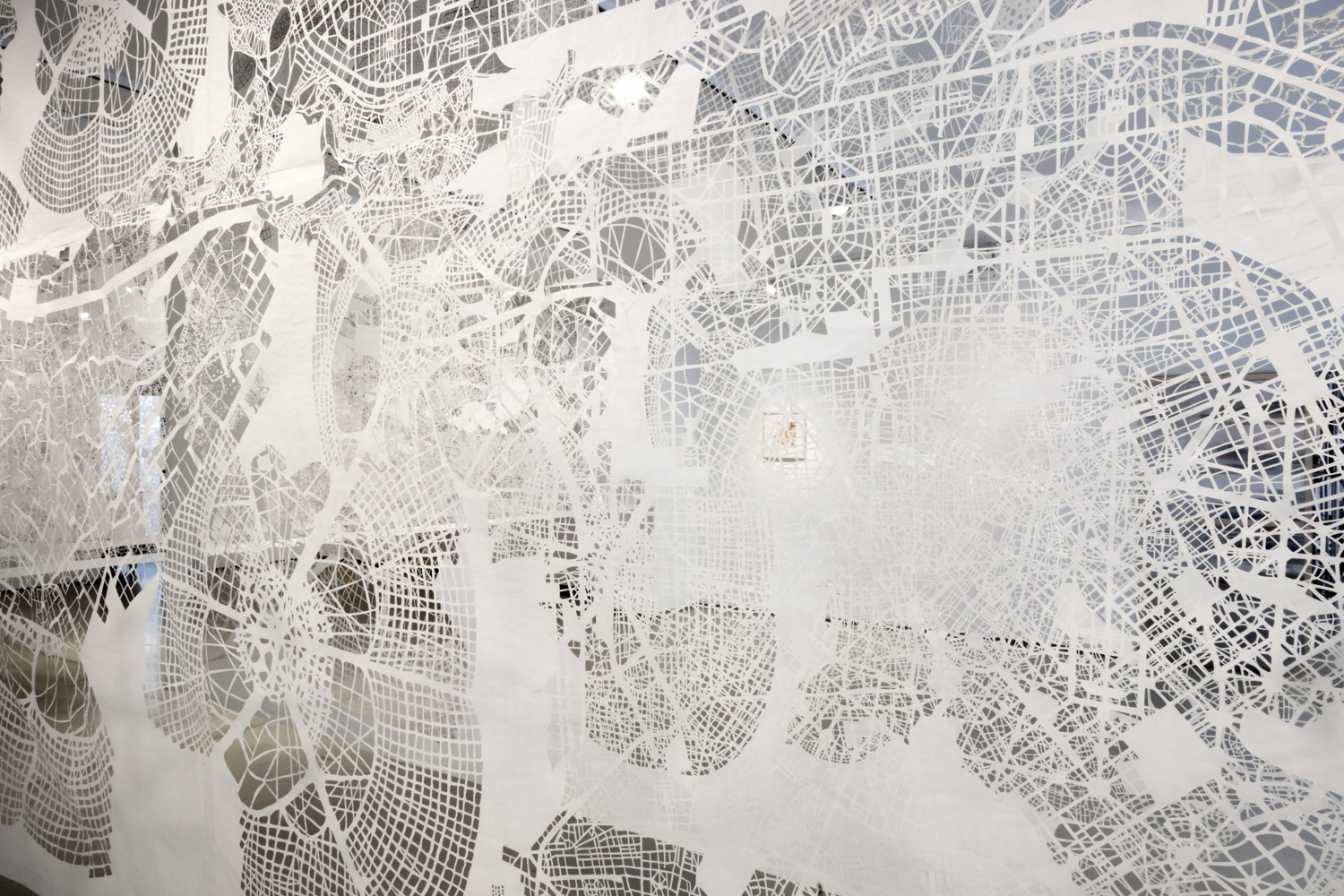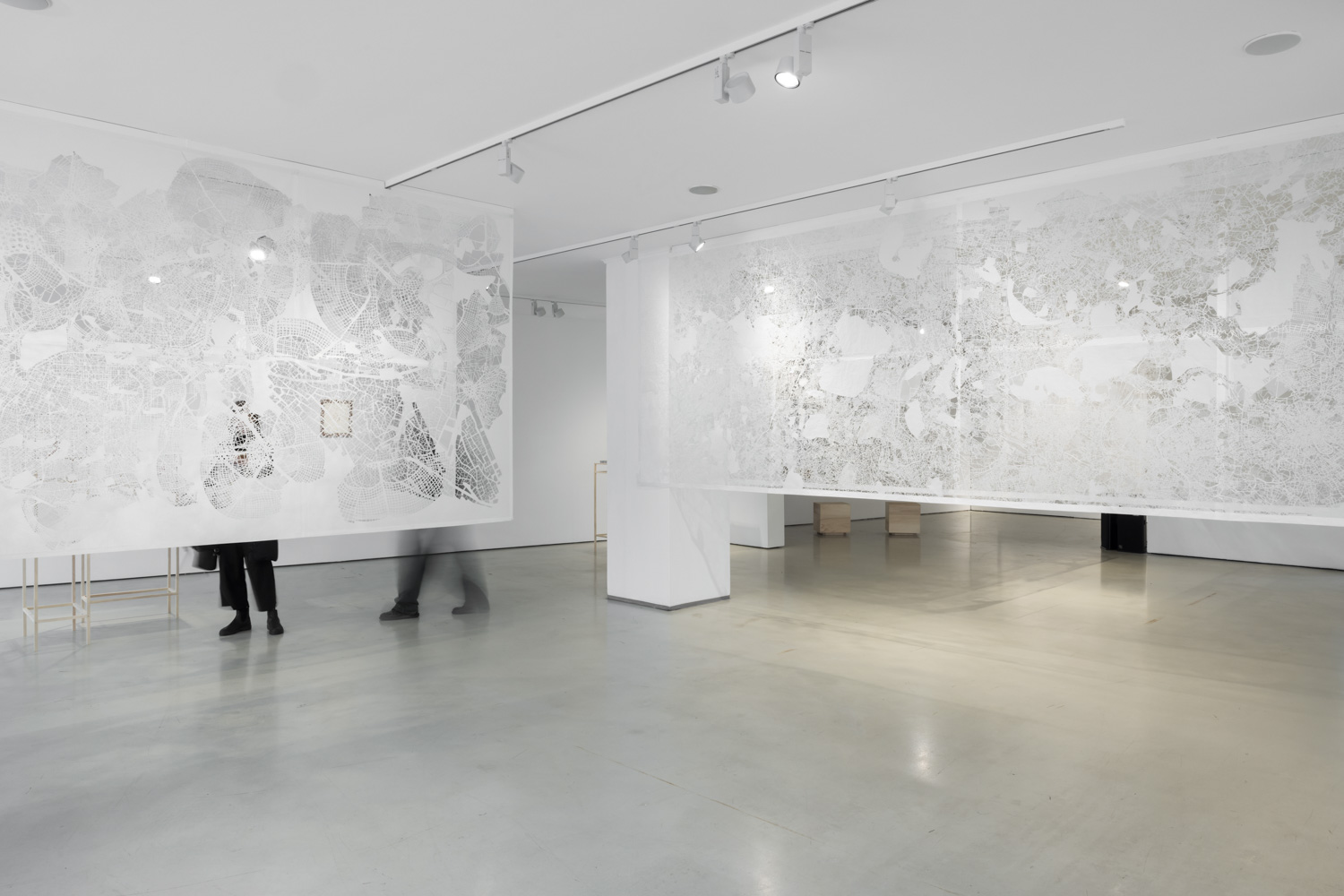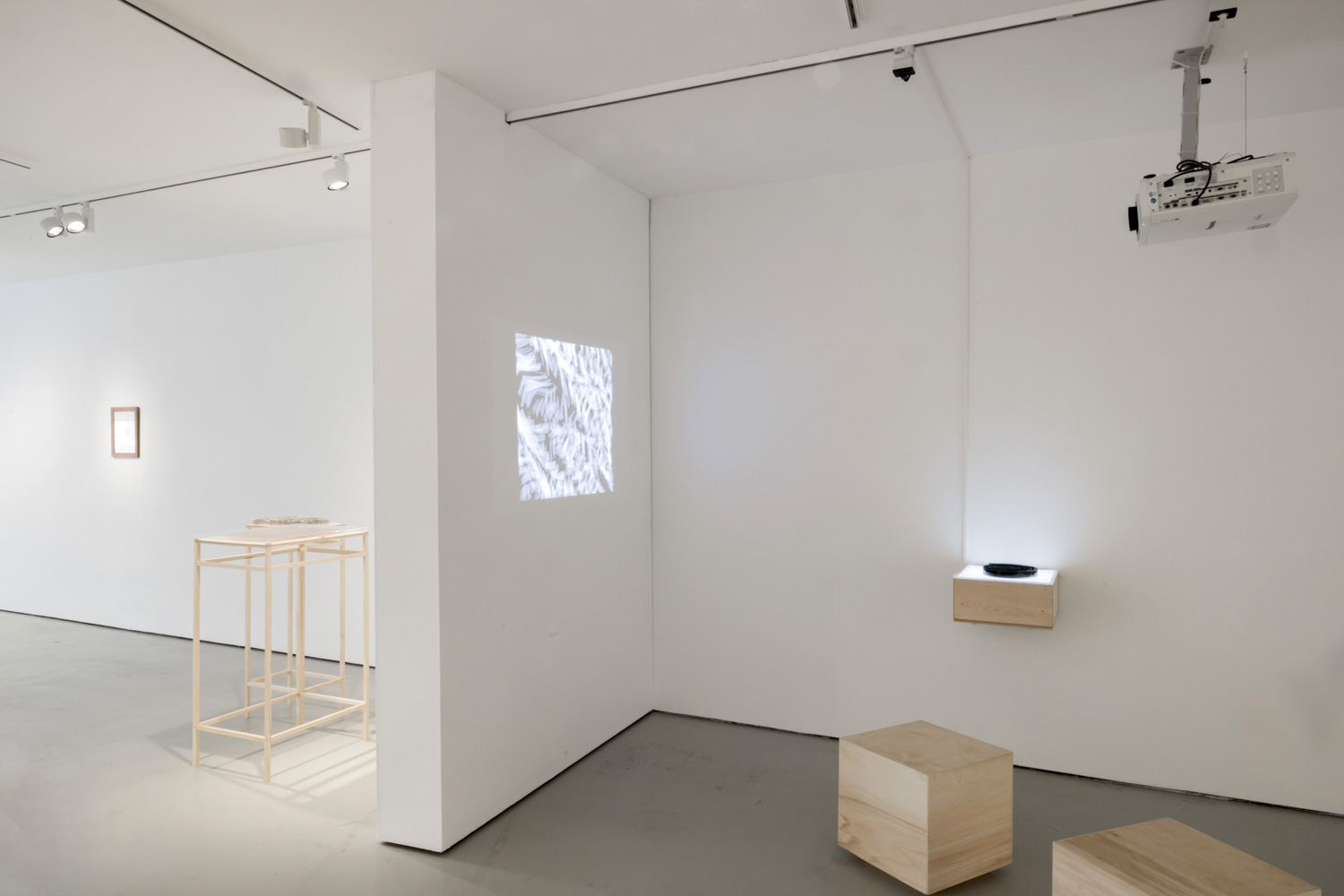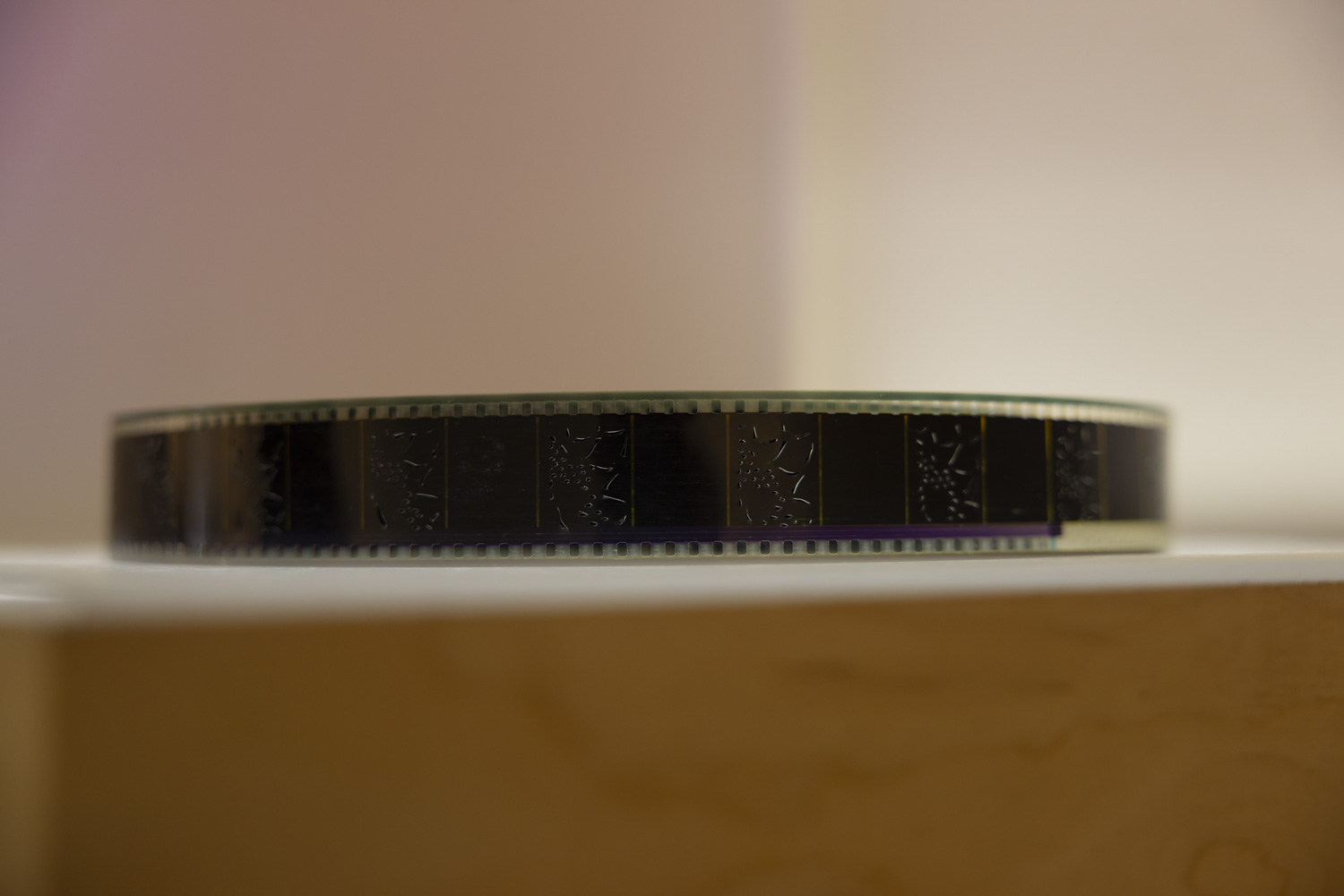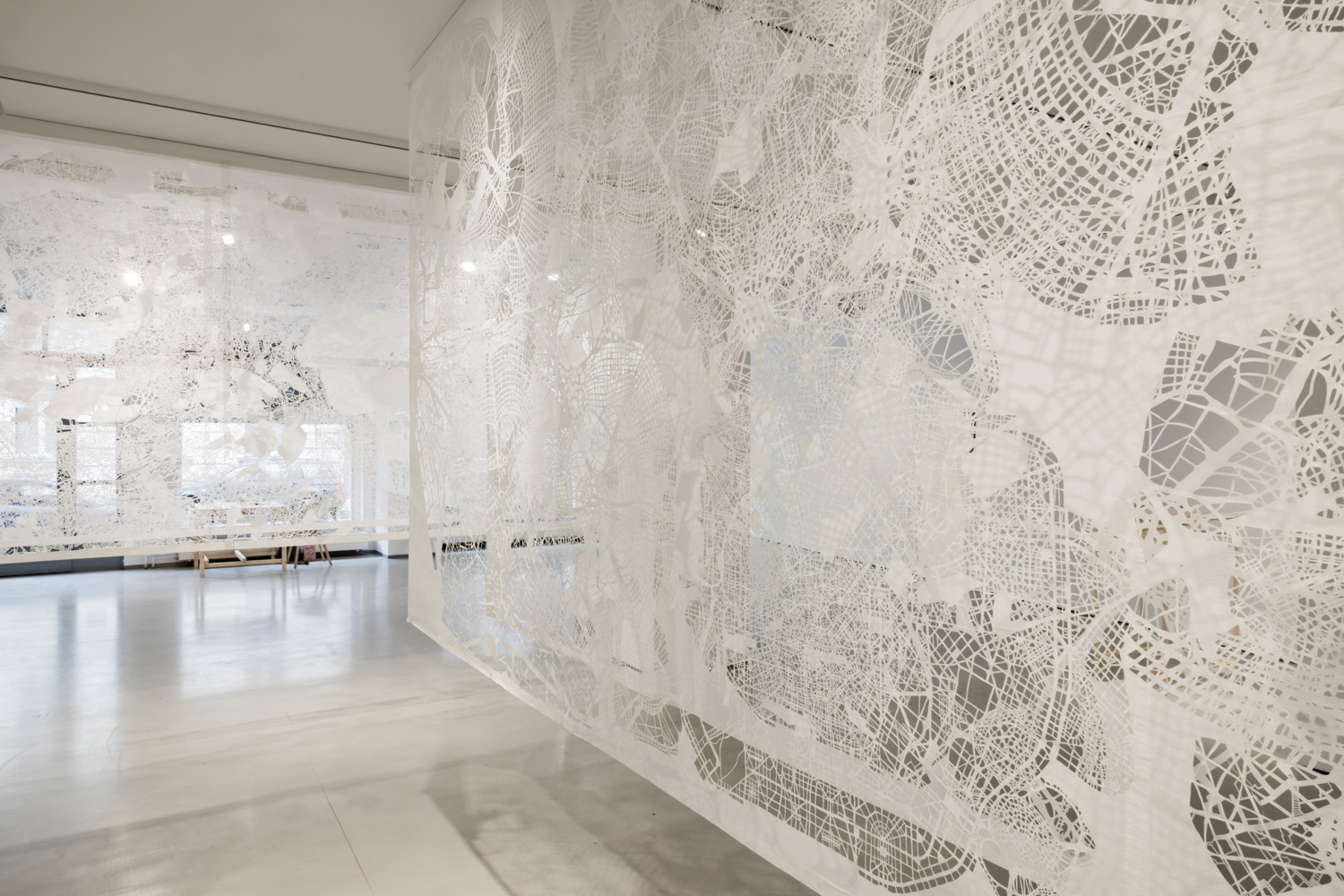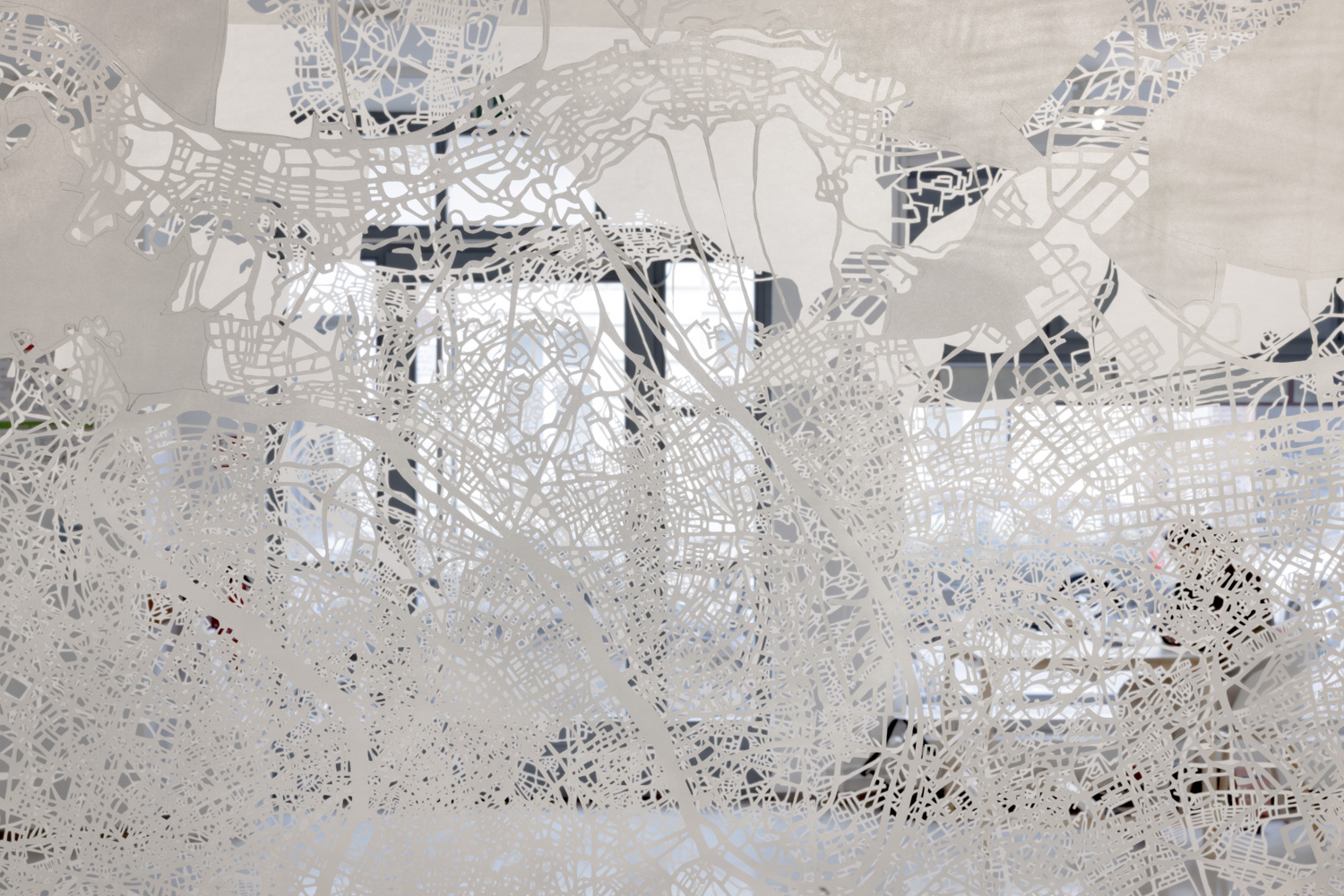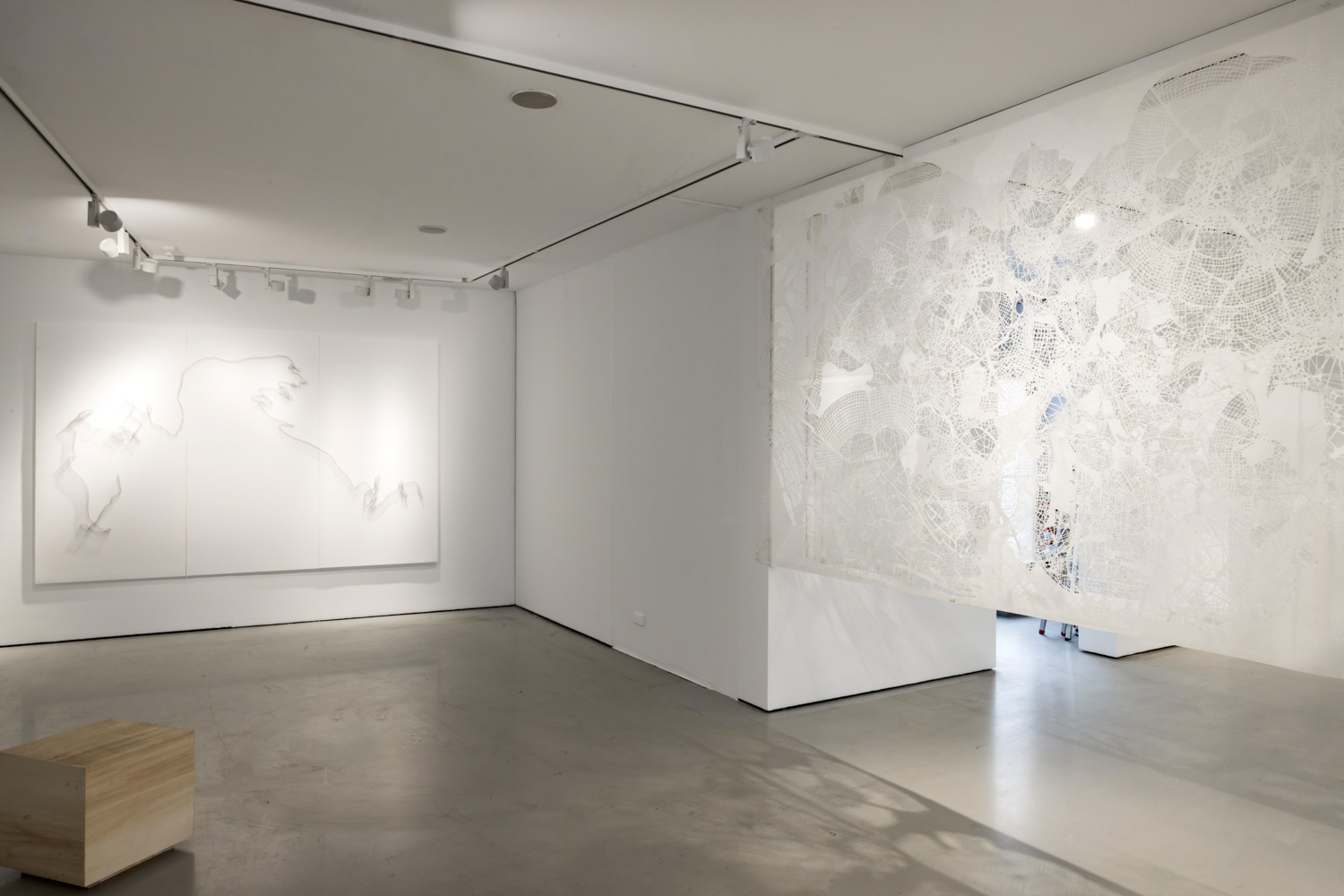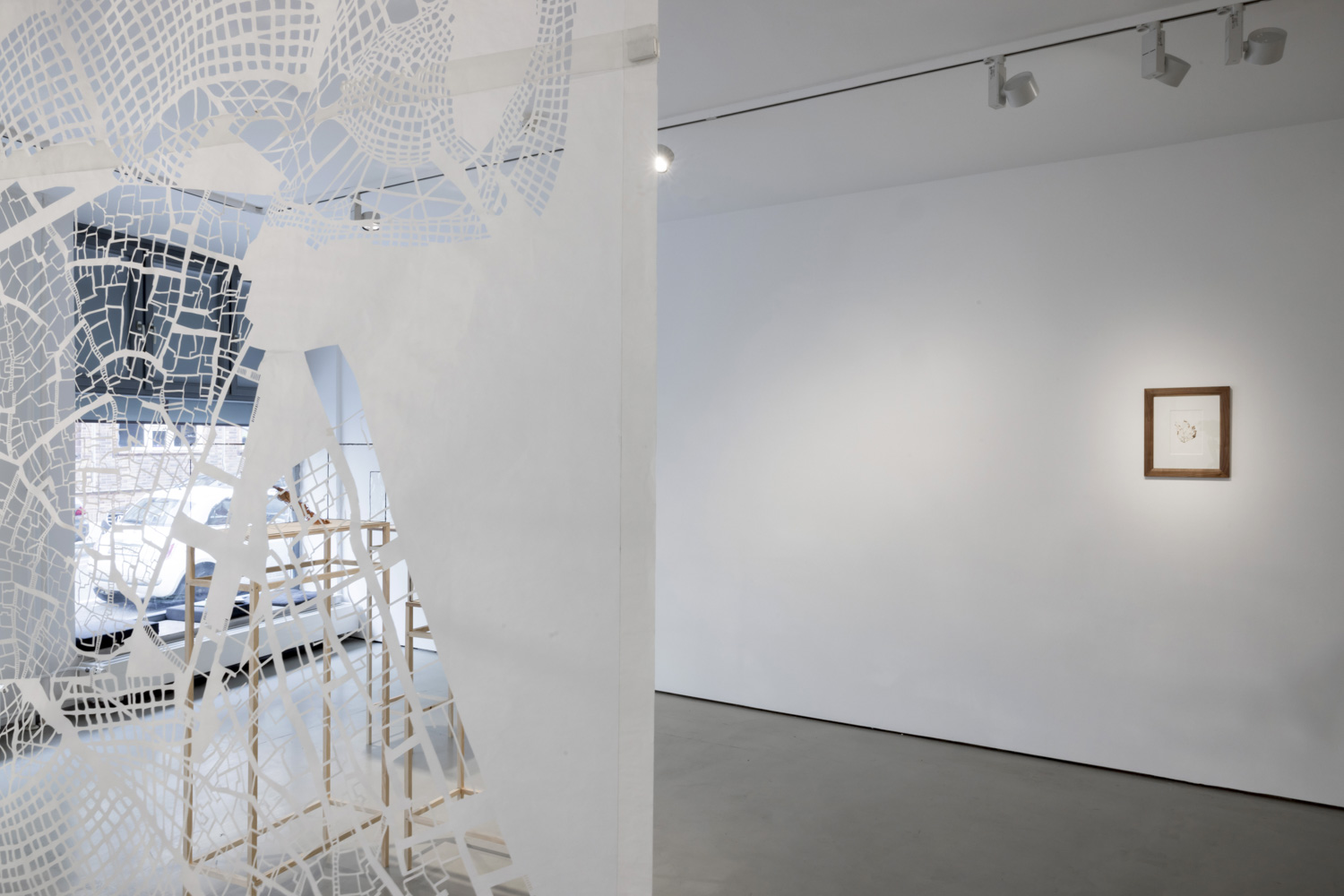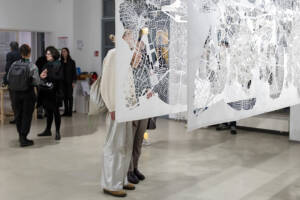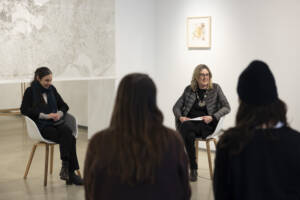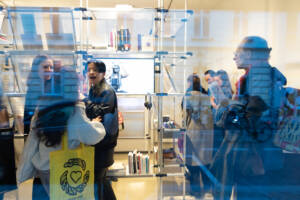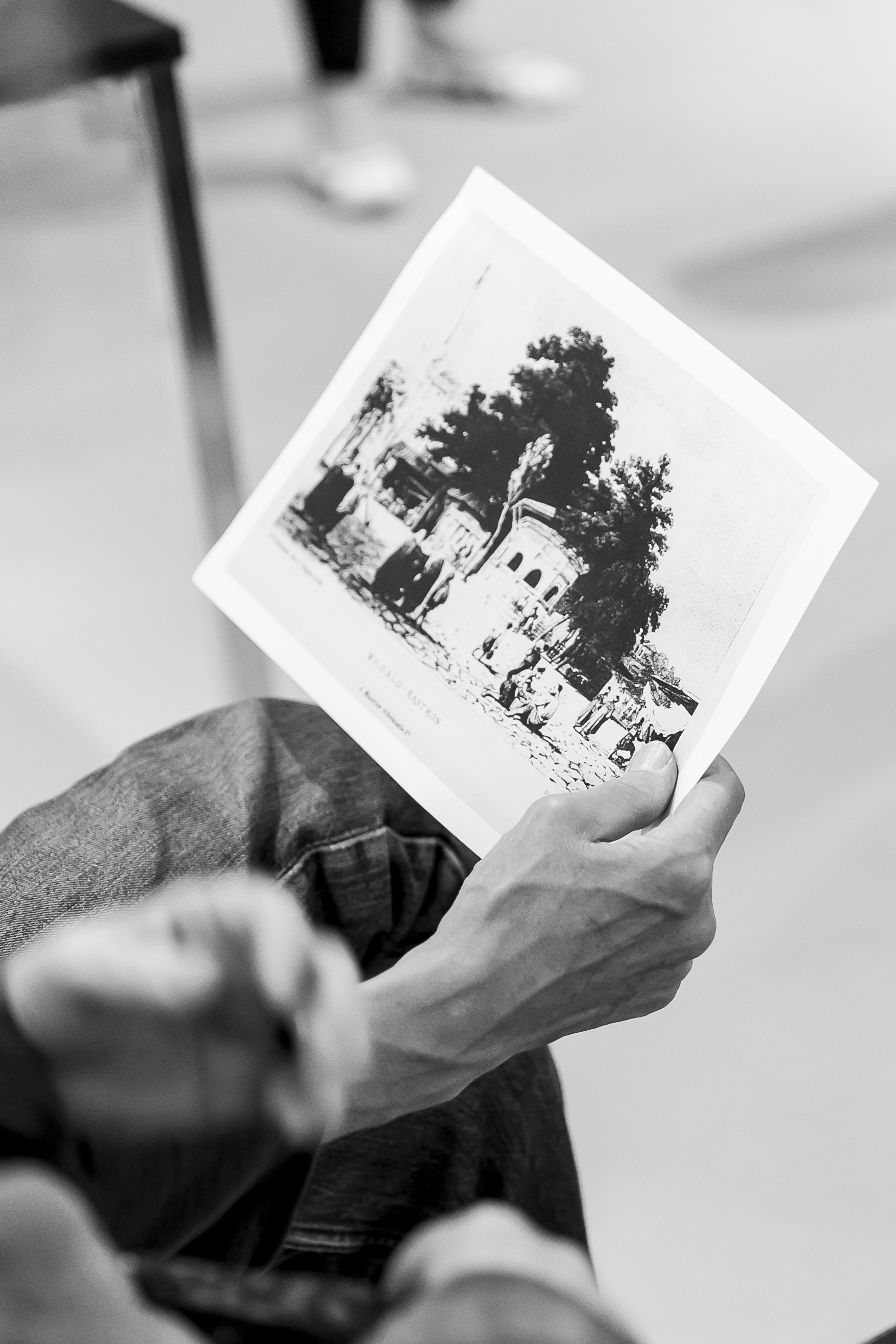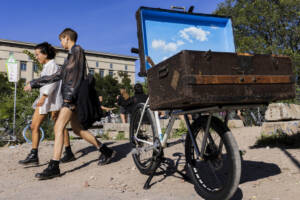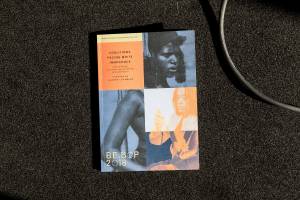Artist: Elisabetta Di Maggio
Curator: Chiara Bertola
This project revolves around a theme central to Elisabetta Di Maggio’s art: the communication networks that serve to transmit information. Her works reveal the close ties that exist among webs, circuits, grids, structures, and meshes that belong to very different worlds, but are all part of the sphere in which we lead our everyday lives.
When we think of circuits or webs, examples that spring to mind include the complex venations of leaves, the tracery of lines on human skin, the routes of subway trains, or the intricate shape of a nerve cell: upon close examination, these seemingly disparate things echo each other in many ways. Drawings of the synapses in our brains, for instance, resemble the roots and branches of trees, as meticulously detailed as illustrations in an old botanical treatise. The delicate filigrees of the plant world and the channels of the body suggest connections, reminding us of the intricate networks of human communication.
Truth rests on maps drawn in the air. It does indeed seem to be “mapping the air,” so difficult to detect are the threads and circuits in which life on earth unfolds. This means everything which sustains it or which governs the activities of nature and humanity tends to be organized into pathways and networks that cannot be seen or perceived, but ultimately prove to be the key structures supporting and linking the energies and entities of the world.
Elisabetta Di Maggio’s project Mapping the Air, is thus a metaphorical reflection on our existence as parts of a whole, fragments of a natural world that, at the microcosmic and macrocosmic level, is constantly shifting and changing due to the extraordinary fecundity of its laws.
Elisabetta Di Maggio (Milan 1964) lives and works in Venezia. For many years, she has been working on a research that emphasizes two salient elements of life: the network of communications needed to transmit information and the time required for these actions to take place. She has been trying to exhibit the close connections among the plots, circuits, grids, structures and networks belonging to different environments, which are part of our existence and where we spend our time and our daily life. The working method is always the same, she cuts different materials using a very sharp surgical scalpel. She works with a variety of materials, from tissue paper sheets, to small or huge vegetable leaves, soap, porcelain, and with different surfaces, including the plastered walls. In this way her research becomes a metaphorical reflection on our human condition.
Di Maggio’s works have been exhibited in national and international venues, including NMWA Washington DC (2020), Museo Maxxi, Roma (2019), Arter Museum, Istambul (2019), Fondazione Querini Stampalia, Venezia, (2017) Museo MAMbo, Bologna (2016), NCCA Mosca (2015), Hangar Bicocca, Milano (2010), Fondazione Merz, Torino (2008), XV QUADRIENNALE d’ARTE in Roma (2008) MOT Museum, Tokyo (2007). The artist’s works are held in international museums, public and private collections, including Magazzino Italian Art Foundation (Cold Spring NY), Arter Museum (Istambul), Museo MAMbo ( Bologna), Museo Maxxi ( Roma), Mallin Collection (New York),Fondazione Querini Stampalia ( Venezia)
Chiara Bertola was born in Turin in 1961. She lives and works in Venice. She is Curator of Contemporary Art Program at the Querini Stampalia Foundation in Venice since 2000. She was artistic director at the Hangar Bicocca in Milan from 2009 to 2012. Creator and curator of the FURLA Art Prize (10th edition January 2015). Curator of the Venice Pavilion at the 52nd Venice Biennale, 2007. Co-curator of the 15th edition of the Rome Quadriennale, 2008. She has been President of the City of Venice’s Bevilacqua La Masa Foundation. From 1996 to 1998. Founding member of Love Difference (2000), Artistic Movement for an ‘Intermediterranean Politic’ (together with Michelangelo Pistoletto and others).
She has curated many exhibitions both in Italy and abroad. Among other: Danh Vo (2022), Roman Opalka (2019), Paolo Icaro (2018), Giovanni Anselmo (2017), Elisabetta Di Maggio (2017), Jimmie Durham (2015), Haris Epaminonda (2014), Qiu Zhijie (2013), Gianikian-Ricci Lucchi (2012), Christian Boltansky (2011), Hans Peter Feldmann (2012), Ilya&Emilia Kabakov (1989, 2003, 2012), Surasi Kusolwong (2011), Michelangelo Pistoletto (2013, 2000), Marisa Merz (2011), Mona Hatoum (2009, 2014, 2015), Georges Adeagbo (2008, 2009), Remo Salvadori (2006), Kiki Smith (2005), Boris Mikhailov (2001), Giulio Paolini (2001), Lothar Baumgarten (2001), Joseph Kosuth (2000)…In 2010 at the Hangar Bicocca in Milan she curated the international experimental project: Terre Vulnerabili – a growing exhibition. In 2008 she published the book, Curating Art, which deals with art curating theory (Mondadori, Milan). The book Walking along curating art and the book Conserving the future on the Querini Stampalia artistic project are in the process of being published.
